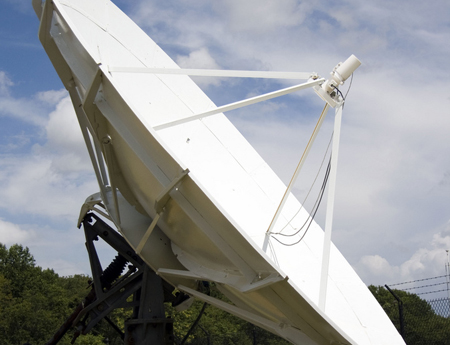ACAC Seeks Stay of C-Band Lump Sum Decision
Exclusion of IRD payments prompts action

The smarter way to stay on top of broadcasting and cable industry. Sign up below
You are now subscribed
Your newsletter sign-up was successful
ACA Connects is asking the FCC to stay its Aug. 31 deadline for picking the C-Band reimbursement lump sum payment and is also asking the commission to reconsider that decision.
ACAC, which represents small and medium sized cable operators, wants a swift FCC decision either way so it can seek a court stay before the Aug. 31 deadline.
In a petition for stay and for review filed Aug. 13, ACA said that the FCC's decision "is inconsistent with the Commission’s C-Band Order, rests on arbitrary and capricious reasoning, and was developed in violation of the Administrative Procedure Act’s public-notice and disclosure requirements."
“Staying the election deadline now will give the FCC an opportunity to review and correct the Bureau’s determination and will also reduce the risk of future significant disruption that would occur if the Bureau’s lump-sum determination were later set aside on judicial review,” said ACAC president Matt Polka.
In a move last month that ACAC had signaled could land the FCC in court, the Wireless Telecommunications Bureau released the final cost catalog for C-band relocation expenses and lump sum elections and it did not include compensating cable operators for integrated receiver/decoders (IRDS), as ACA Connects and other cable operators had pushed for.
Related: Cable Ops Say FCC Is Lowballing C-Band Payments
Including the IRD costs would make it easier for cable ops to move to fiber delivery, but the FCC said the lump sum was meant to approximate the cost of moving earth stations, not moving to a new distribution technology.
The smarter way to stay on top of broadcasting and cable industry. Sign up below
The C-Band is used to distribute network programming to broadcasters and cable operators and remote signals to studios.
IRDs receive and decode satellite signals from programmers and are needed if cable ops move earth stations, but not if they transition to fiber delivery.
The FCC is clearing the lower 300 MHz of the 500 MHz C-Band satellite spectrum for auction to wireless carriers for terrestrial broadband. The incumbent users, including cable operators, are being compensated for their move out of that spectrum.
Cable operators wanted the lump some to include payment for relocating all of their earth stations but be free to use it to transition some or all of their earth stations to fiber delivery instead. ACAC urged the commission "to give earth station operators flexibility to pursue alternative technology upgrade strategies if doing so would be more efficient."
Broadcasters teamed up with TV content companies--broadcast and cable programmers--to ask the FCC not to allow MVPDs to include IRDs in the lump sum.
They argue, and the FCC agreed, that the expenses are properly assigned to programmers and satellite operators, not MVPDs.
Cable operators say it is appropriate to include IRD costs in lump sum payments "to the extent an average earth station operator reasonably would expect to pay such expenses itself if it elected to submit actual costs for reimbursement."
The content companies suggest that would balkanize the process impeding a smooth transition out of the lower C-Band.
Contributing editor John Eggerton has been an editor and/or writer on media regulation, legislation and policy for over four decades, including covering the FCC, FTC, Congress, the major media trade associations, and the federal courts. In addition to Multichannel News and Broadcasting + Cable, his work has appeared in Radio World, TV Technology, TV Fax, This Week in Consumer Electronics, Variety and the Encyclopedia Britannica.

